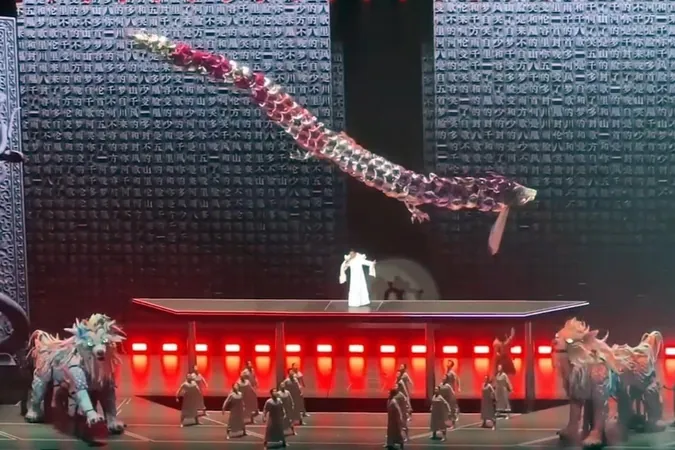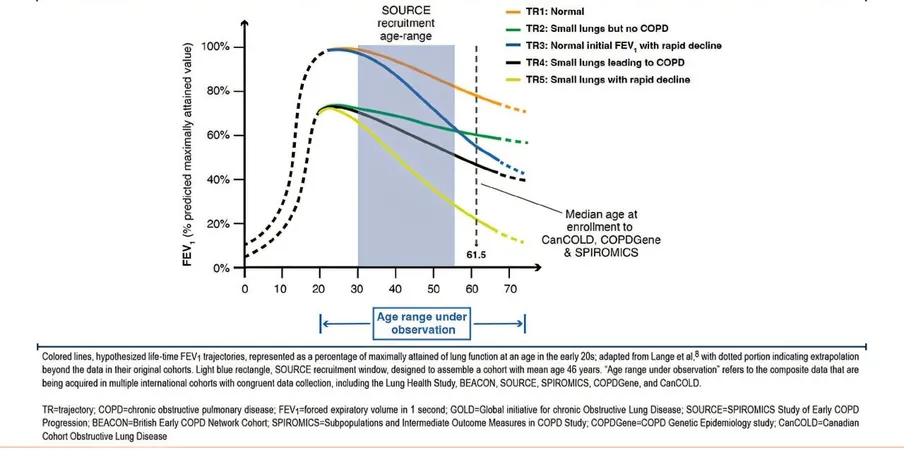
Andy Lau's Concert in Taiwan Ignites Cross-Strait Tensions: What You Need to Know
2024-11-09
Author: Arjun
Andy Lau's Controversial Performance
In a stunning turn of events, the iconic Hong Kong pop star Andy Lau has found himself at the center of a heated political controversy following his recent performance in Taipei, Taiwan. This marked Lau's first concert on the island in over ten years, and he chose to perform his classic song, “Zhong Guo Ren” or “Chinese People,” which has historical and nationalistic connotations.
Backlash Over Song Choice
The backlash erupted after Lau performed the song with the lyrics projected in simplified Chinese characters—a stark contrast to Taiwan's traditional characters. This stage design did not sit well with several Taiwanese citizens, including a vocal critic from the ruling Democratic Progressive Party (DPP), legislator Wang Ting-yu. Wang took to social media on November 2, posting a video clip of the performance, questioning, "Is this a scene of Andy Lau performing in China? What a very, very 'China’ stage design." His comments went viral, igniting passionate discussions across various platforms.
Political Criticism and Public Reaction
Wang further criticized Lau, labeling him a “pro-Communist Party artiste” and expressing disbelief that Lau would sing such a politically charged song in Taiwan. The lyrics of “Zhong Guo Ren” touch on themes of unity and national identity, which have become increasingly sensitive issues in light of the deteriorating relations between Taiwan and China.
In response to the controversy, many Taiwanese netizens echoed Wang’s sentiments, alleging that Lau’s song choice was an attempt to “culturally indoctrinate” his audience. One commenter stated, “If you’re Chinese, then don’t come to Taiwan to hold your concerts.”
Defending Lau
This incident did not go unnoticed by Chinese internet users, who rushed to Lau’s defense, emphasizing that the song's creators were actually Taiwanese. The lyricist, Preston Lee An-xiu, and composer, Chan Yiu-chuen, are well-known figures in the music industry and have collaborated with numerous artists across the region since the '90s.
Governmental Reactions and Expert Insights
The matter escalated to the governmental level, with China's state-run media accusing Wang of inciting cross-strait discord and urging Taiwan’s leadership to clarify whether Wang's views were representative of the DPP’s official stance. A Global Times opinion piece characterized the incident as revealing the fragility of “Taiwan independence” sentiments.
Experts weigh in on the issue as well. Dr. Josephine Chiu-Duke, a professor of Chinese intellectual history, notes that many in Taiwan feel a disconnect from the Chinese Communist Party’s regime due to ongoing threats and assertive tactics against Taiwan. She indicated that Lau's performance may have been interpreted as a political statement, albeit unintentionally.
A Historical Context
In the backdrop of history, this isn't the first time a Taiwanese pop culture moment has stirred political controversy. In 2007, the Taiwanese girl group S.H.E faced backlash for their song "Zhong Guo Hua," accused of pandering to pro-China sentiments. The stakes appear higher now than they did during previous controversies, reflecting the increasingly charged atmosphere of cross-strait dynamics.
Comparisons with Past Events
Interestingly, during Lau's last concert in Taipei in 2013, similar political sensitivities did not provoke outrage. According to Taiwanese legislator Hung Mong-kai of the opposition Kuomintang party, Lau's selection of songs remains consistent across his global tours, pointing out that “Just hearing the song (Zhong Guo Ren) won’t cause us to forget that we are Taiwanese. Let music be music.”
Conclusion
As tensions continue to simmer, the interplay between arts, identity, and politics remains complex—a stark reflection of the ongoing struggle for national identity and recognition in a geopolitically sensitive environment. The fallout from Lau's concert serves as a reminder of how deeply intertwined culture and politics are in this era, making it essential to stay attuned to these developments.


 Brasil (PT)
Brasil (PT)
 Canada (EN)
Canada (EN)
 Chile (ES)
Chile (ES)
 España (ES)
España (ES)
 France (FR)
France (FR)
 Hong Kong (EN)
Hong Kong (EN)
 Italia (IT)
Italia (IT)
 日本 (JA)
日本 (JA)
 Magyarország (HU)
Magyarország (HU)
 Norge (NO)
Norge (NO)
 Polska (PL)
Polska (PL)
 Schweiz (DE)
Schweiz (DE)
 Singapore (EN)
Singapore (EN)
 Sverige (SV)
Sverige (SV)
 Suomi (FI)
Suomi (FI)
 Türkiye (TR)
Türkiye (TR)